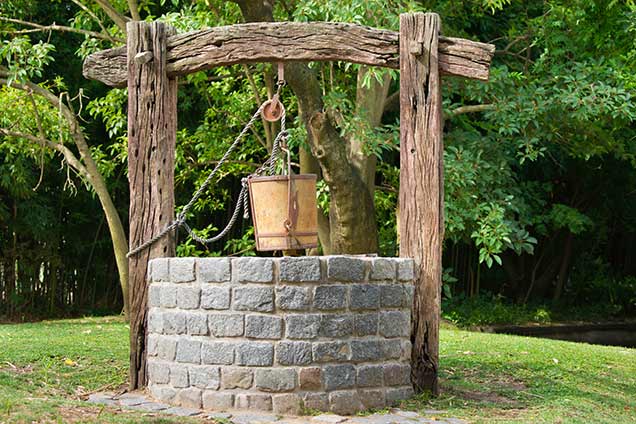In this week’s Torah portion, Isaac travels to Gerar (a city in the region known as Gaza) and encountered the Philistines (a no longer extant people, likely of Greek origin, who lived in the area. Not to be confused with another group of people who more recently gave themselves a similar name.)
Isaac begins improving the land around him and making the desert bloom by digging up wells. Unfortunately, not everyone is happy with this:
And Isaac’s servants dug in the valley, and they found there a well of living waters. And the shepherds of Gerar quarrelled with Isaac’s shepherds, saying, “The water is ours”; so he named the well Esek, because they had contended with him. And they (Isaac’s people) dug another well, and they (the Philistines) quarrelled about it also; so he named it Sitnah.
Breishis 26:19-21

Water is a precious resource in an arid climate like that, so it’s understandable that the Philistines were fighting Isaac left and right to take his wells. Obviously, not very admirable to wait for someone else to do the work and then take the goods, but at least understandable.
But upon further investigation, it becomes less clear. The Torah also says:
And all the wells that his father’s servants had dug in the days of Abraham his father the Philistines stopped them up and filled them with earth.
Breishis 26:15
Why would the Philistines stop up existing wells? They went out of their way to remove a resource from their own region! If they simply left Abraham’s wells alone, there would already have been plentiful water before Isaac even showed up. The Philistines are not just being malicious, but self-destructive now too! Why would they do that?
The Torah clarifies the real source of the contention earlier in the story:
And Isaac sowed in that land, and he found in that year a hundred fold, and Hashem blessed him. And the man became great, and he grew constantly greater until he had grown very great. And he had possessions of sheep and possessions of cattle and much production, and the Philistines envied him.
Breishis 26:12-14
Envy. Envy is different from just wanting something. Envy is wanting specifically the thing that someone else has. If the Philistines wanted water, they could have built their own wells, and everyone could have lived happily ever after. But instead, they envied the wells of Abraham and Isaac. Therefore, they had to take their wells or even destroy their wells, so that no one could have something more than them.
Meaning, envy can make you even work against your own self interest just to “even the playing field” and make sure no one else can get more than you.
Isaac, for his part, just kept digging more wells, even as much of his water just ended up in the hands of the Philistines. He focused on building himself up rather than envying what others had. And for that, Hashem blessed him.
We should take note of this story. Not just for its own sake, but because our Sages tell us that the stories of our forefathers echo forward and hint to the future stories of our people. That, perhaps, we would one day have to provide our water to those who envy and hate us.
We should always beware of envy. It has the ability to blind men and turn them into monsters. Instead, we should direct our efforts to how we can improve ourselves and use our energy to make the world a better place for ourselves and for others. It’s not only the right thing to do. It’s the smart thing to do.
Good Shabbos,
Rabbi A


Thank you Rabbi Altonaga!